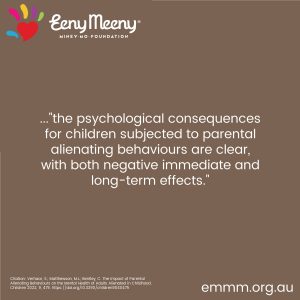The Impact of Parental Alienating Behaviors on the Mental Health of Adults Alienated in Childhood


Through manipulation and coercion, innocent children are weaponized against the alienated parent. Children are involuntarily forced to align entirely with one parent and sever ties with the other. They are forbidden to love a parent with whom they were previously close to.

Targeted parents and alienated children suffer the effects of this atrocity for a lifetime.
Being in a relationship with a High Conflict Person (HCP) or a toxic person can be debilitating. Many adults with children will hold off on seeking help from the courts, or seeking a separation from the HCP in order to preserve the status quo for their children. But, as many are beginning to understand, children raised in a home with a HCP or toxic parent can suffer later in life.
Law Offices of Michael F. Roe has, for decades now, been managing divorce and child custody cases with HCPs. “Understanding high conflict personalities is the missing piece in managing high conflict disputes.” – Bill Eddy, author of Splitting.
Take a look through our blog and the website for information about divorce and the HCP or personality disordered spouse. We have the experience and the expertise to manage these cases, and open doors to a better future for parents and their children affected by HCPs.
I saw this post today on Facebook, and it might be helpful to some families dealing with Parental Alienation:
“Mark David Roseman and Associates offers its Fall 2021 support group for alienated parents, beginning September 22 via Zoom. This group is uniquely different in its compassion and understanding of parents on the journey of separation from their children, with facilitators who respect the healthy integration of mind, body and spirit.
Our group is spiritual, but we do not espouse any religious or political identity. We are fully committed to the healing of broken families, in order to restore what has been lost after high conflict.”
My Illinois Divorce Blog focuses on a variety of subjects, including the means by which to manage divorce and child custody with a toxic narcissist. I can say that almost every day, I receive a message that sounds like this that came today:
|
|||
|
This message is from someone being harmed by both the toxic narcissist in her life, and well as possibly by her local court system ( I get many calls each month from people outside of Illinois that need help, and I try answer most all of these calls with some help, resources like Bill Eddy’s Splitting book, and a lawyer referral if needed). For over 25 years, my practice has focused, in large part, on psychological issues in divorce, and issues that affect the wellbeing of the children of marriages involving personality disorders.
The announcement of the Parental Alienation Study Group (PASG) comes at a great time, as we start to try to emerge from COVID lockdowns, and restart these important conferences. I received the announcement below this morning, and look forward to this conference. “PASG has 700 members – mostly mental health and legal professionals – from 55 countries. The members of PASG are interested in educating the general public, mental health clinicians, forensic practitioners, attorneys, and judges regarding parental alienation. PASG members are also interested in developing and promoting research on the causes, evaluation, prevention, and treatment of parental alienation.”
______________________________________
PASG 2021 Conference 9-10 September 2021
Bill Eddy’s High Conflict Institute always has great information in the field of managing High Conflict Personalities in the context of divorce and Family Law cases. It is difficult, if not impossible, to manage some people that present as High Conflict; often these people have traits of personality disorders that make their behaviors and communications toxic. As is pointed out below, the HCP (High Conflict Person) is not going to change, but you as the stable and rational party can always choose how to respond. One element that the article does not mention is the benefits to using a third party, such as a skilled Parenting Coordinator, to intercede in conflict situations, and allow the rational person to retreat to the safety of the Parenting Coordinator, instead of arguing or fighting with the HCP. In other words, if the HCP wants a toxic fight, don’t reward the bed behavior. Choose better ways to manage HCPs, and preserve a bit a tranquil space for yourself and the children.
The 4D’s of High Conflict Divorce
1. Disengage: You are in conflict with your child’s other parent because their words and actions negatively trigger and affect you and your children. And, like most parents, you will do anything to protect your children form harm – physical, verbal and emotional. If you take the time to sort through your triggers and plan a strategy for how to cope when triggered, you will be putting yourself (and your children) on a path for healthier conflict resolution.
I have had the pleasure to be a member of the American Psychological Association, for many years, and to devote myself to continuing graduate-level education in the psychological sciences. Just as a medical doctor might benefit from a strong background or understanding in, say, nutrition, or kinetics, I have always felt that the practice of Family Law almost requires a fundamental understanding of psychology. The article below is taken from an essay concerning a family lawyer that trained as a psychologist, and how this training has been integral to his practice.
Using his unique background in psychology, David – who has written a best-selling book called “Moving On: Redesigning Your Emotional, Financial, and Social Life After Divorce” – shares the difference taking into account mental health can make in family law cases.
How do psychology and divorce go hand-in-hand?